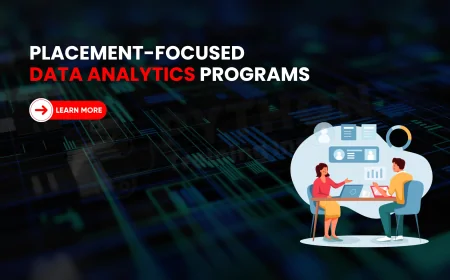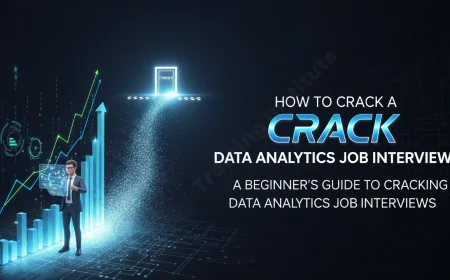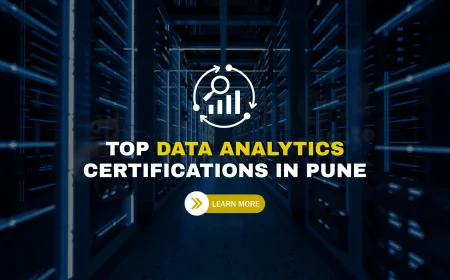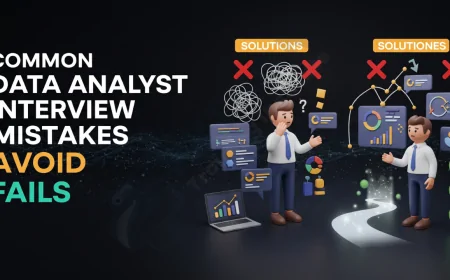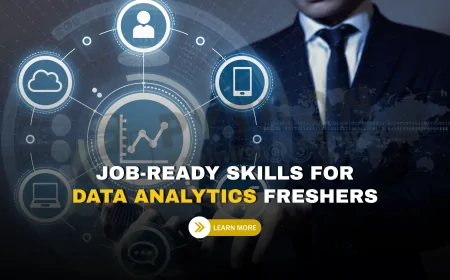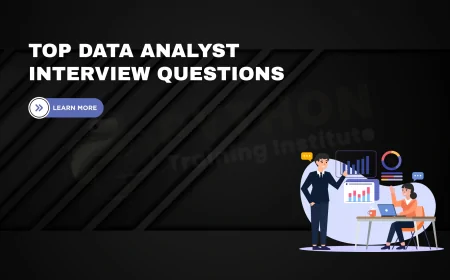Why Python is the Best First Programming Language
Learn why Python is the best first programming language for beginners. Explore its simplicity, real-world use cases, job opportunities, and how to start coding in Python today.
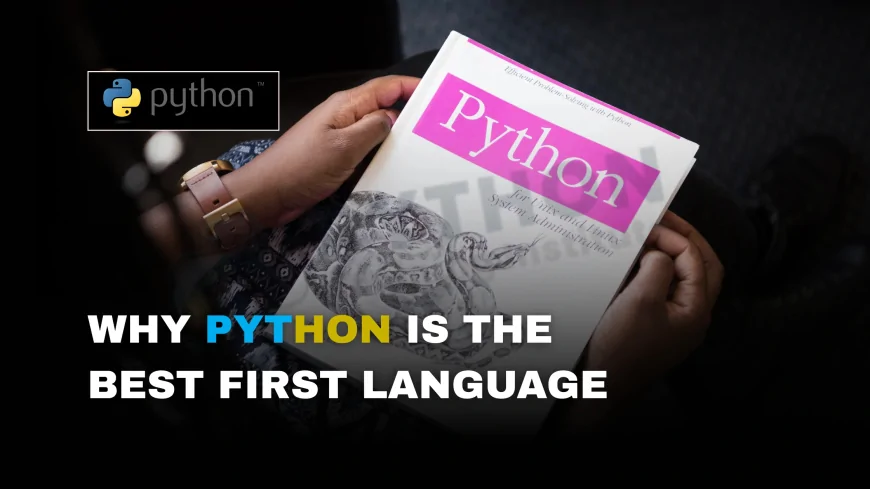
Table of Contents
- 1. Introduction to Python
- 2. History and Evolution of Python
- 3. Python's Philosophy: Simple is Better Than Complex
- 4. Readability and Simplicity
- 5. Real-World Applications of Python
- 6. Career Opportunities and Job Market
- 7. Beginner-Friendly Tools and Resources
- 8. Hands-On Projects to Learn Python
- 9. Comparing Python with Other Programming Languages
- 10. Learning Path for Python Beginners
- 11. Python in Schools and Academia
- 12. FAQs
- 13. Conclusion
Introduction to Python
Python is a high-level, interpreted, general-purpose programming language. Created by Guido van Rossum and first released in 1991, Python is used in everything from web development to artificial intelligence. Its philosophy prioritizes simplicity and readability, which makes it an ideal language for beginners.
History and Evolution of Python
Python began as a hobby project in the late 1980s, influenced by the ABC programming language. Over the years, it has evolved significantly, with major releases such as Python 2.x and Python 3.x introducing new features and improving performance.
Python's Philosophy: Simple is Better Than Complex
Python follows the Zen of Python, a collection of 19 guiding principles. Some of the most relevant include:
- Beautiful is better than ugly.
- Explicit is better than implicit.
- Simple is better than complex.
- Readability counts.
These principles encourage developers to write clean and understandable code, which is crucial for beginners.
Readability and Simplicity
Python code reads almost like English, making it easier to understand and write. Here’s a simple comparison of printing numbers from 0 to 4:
Python:
for i in range(5):
print(i)Java:
for(int i=0; i<5; i++) {
System.out.println(i);
}This simplicity lowers the barrier to entry for new programmers.
Real-World Applications of Python
Python is not only beginner-friendly but also powerful and versatile. It is used in many real-world domains:
- Web Development: Frameworks like Django and Flask make it easy to build web applications.
- Data Science: Libraries such as Pandas, NumPy, and Matplotlib enable robust data manipulation and visualization.
- Machine Learning: Scikit-learn and TensorFlow help build predictive models.
- Automation: Automate mundane tasks with scripts using modules like Selenium or BeautifulSoup.
- Cybersecurity: Analyze and test vulnerabilities in networks using Python scripts.
Career Opportunities and Job Market
Python is one of the most in-demand programming languages in the job market today. Many global tech giants like Google, Netflix, and Dropbox use Python extensively.
| Company | Usage of Python |
|---|---|
| Back-end systems, machine learning, automation tools | |
| Netflix | Data analysis, recommendation engines |
| Web development using Django | |
| Dropbox | Cross-platform client software |
Beginner-Friendly Tools and Resources
Several tools make learning Python accessible:
- Thonny: Simplified IDE for learning Python
- Jupyter Notebooks: Interactive environment for data and visualization
- PyCharm: Full-featured IDE for professional development
- VS Code: Lightweight and extensible code editor
- Online platforms: Codecademy, Coursera, and Real Python provide structured lessons
Hands-On Projects to Learn Python
Practice is key to mastering programming. Here are beginner-friendly Python project ideas:
- To-do list CLI app
- Simple calculator
- Weather checker using API
- Basic blog with Flask
- Web scraper for news headlines
Comparing Python with Other Programming Languages
| Feature | Python | Java | C++ |
|---|---|---|---|
| Ease of Learning | Very High | Moderate | Low |
| Syntax Simplicity | Clean | Verbose | Complex |
| Execution Speed | Moderate | Fast | Very Fast |
| Use in Education | Widespread | Limited | Rare |
Learning Path for Python Beginners
- Understand basic syntax: variables, loops, functions
- Explore data structures: lists, dictionaries, sets
- Work on small projects
- Learn modules and packages
- Dive into object-oriented programming
- Pick a specialization: web, data, automation
- Build portfolio projects and share on GitHub
Python in Schools and Academia
Python is now part of many school and college curriculums worldwide due to its simplicity and educational value. It helps students grasp the core logic of programming without worrying about syntax complexity.
FAQs
Is Python good for absolute beginners?
Yes, Python is often considered the best language for first-time coders due to its readability and simplicity.
Can Python get me a job?
Yes, Python skills are in high demand in industries like data science, web development, and automation.
How long does it take to learn Python?
With consistent practice, beginners can learn the basics of Python in 2-3 months.
What can I build with Python?
You can build web apps, games, automation tools, data visualizations, and machine learning models.
Do I need a computer science background to learn Python?
No, anyone can start learning Python regardless of their background.
Is Python free?
Yes, Python is an open-source language and free to use for all purposes.
What are the best websites to learn Python?
Some great platforms include Codecademy, Coursera, edX, Udemy, and Real Python.
Can I use Python for mobile app development?
Yes, with tools like Kivy or BeeWare, but it’s less common than using Java or Swift.
What are Python libraries?
Libraries are collections of pre-written code that help you perform specific tasks more easily, like NumPy or Pandas.
Is Python used in artificial intelligence?
Yes, Python is the most commonly used language in AI and machine learning development.
Can I use Python to automate tasks?
Yes, you can automate repetitive tasks such as file handling, web scraping, and data entry.
Is Python better than JavaScript?
Python is better for general-purpose programming, while JavaScript excels in web front-end development.
What is the latest version of Python?
As of now, the latest stable version is Python 3.12 (check python.org for updates).
Should I learn Python 2 or Python 3?
Always learn Python 3, as Python 2 is no longer supported.
What IDE should I use for Python?
Popular IDEs include PyCharm, VS Code, Thonny, and Jupyter Notebook.
Can Python be used for game development?
Yes, Python libraries like Pygame allow you to create 2D games.
What industries use Python?
Python is used in finance, healthcare, tech, education, and many more industries.
Is Python hard to learn?
No, it's one of the easiest programming languages for beginners.
Do I need to know math to learn Python?
Basic arithmetic is enough to start. Advanced math is only needed for specialized fields like data science.
Can I get certified in Python?
Yes, platforms like Coursera, edX, and Google offer Python certification programs.
Conclusion
Choosing the right first programming language is essential for a successful learning journey. Python’s clear syntax, massive ecosystem, and community support make it an ideal choice. Whether you're aiming for a tech career or looking to automate tasks, Python is the perfect place to start.
What's Your Reaction?
 Like
0
Like
0
 Dislike
0
Dislike
0
 Love
0
Love
0
 Funny
0
Funny
0
 Angry
0
Angry
0
 Sad
0
Sad
0
 Wow
0
Wow
0






